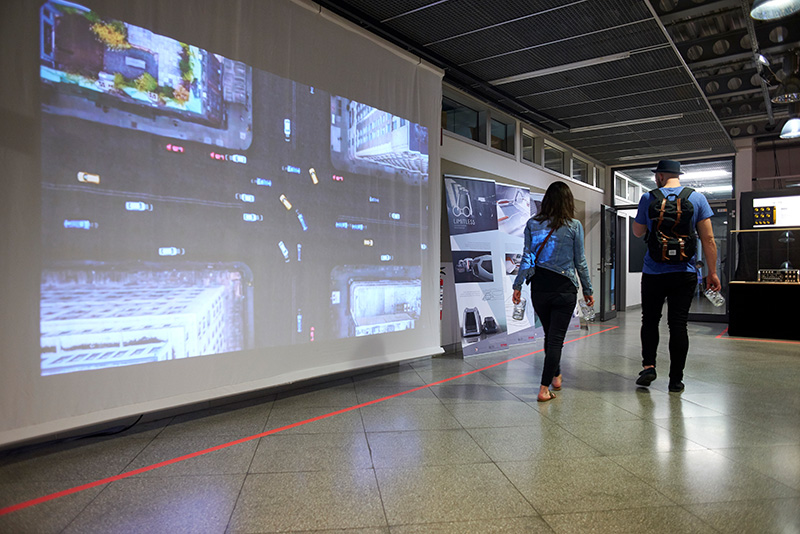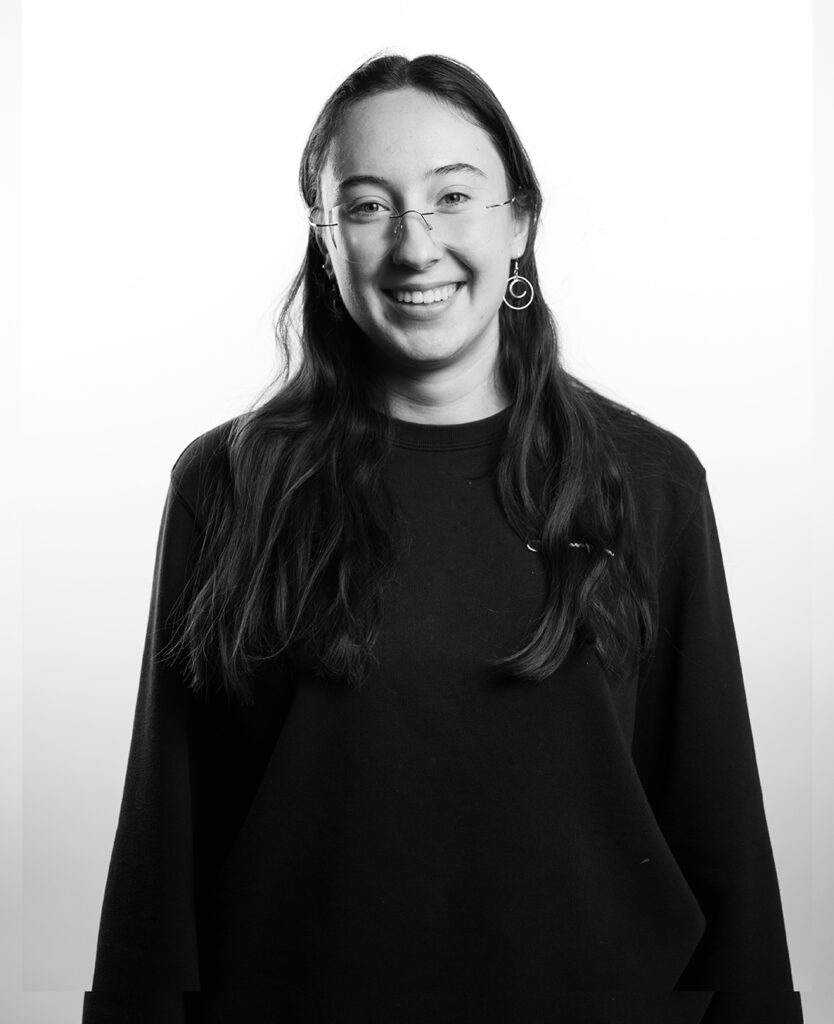Integrated product design
At a glance
Faculty
Academic degree
Bachelor of Arts (B.A.)
Form of study
Full-time
Standard period of study
7 semesters (incl. practical semester), 210 ECTS
Place of study
Language of instruction
German
Start of studies
Winter semester (October 1)
Admission requirements
University entrance qualification, entrance qualification for universities of applied sciences, vocational qualification or foreign educational certificate; aptitude test
Semester abroad
Possible as a theoretical or practical semester
Studying with a practice partner
Accreditation
accredited by the Accreditation Council
Registration
from 02.05. – 15.06.
Profile of the degree program
Integrate means “to connect”. The course combines design subjects with many other disciplines.
This diversity includes economics, technology, ecology and social issues. From church pews to high-tech bicycles, from running shoes to musical instruments – the work of our students is very diverse. Everyone contributes their own personal interests. We promote individual talent. In addition, there are training standards in Coburg that all students have to undergo equally. They are geared towards the requirements of the job market and therefore provide optimal preparation for the profession. Design studies have a long tradition in Coburg. Since the 1998/99 winter semester, we have been training the next generation of creative talent in a practical way.
What we value
Realistic conditions
In Coburg, you learn to design without “training wheels”. This means that you train under realistic conditions right from the start – instead of pondering products in theory in an academic ivory tower.
High standards ensure study quality
The binding principles of the training guarantee the high standard of Coburg graduates. Word of this has now spread to many design offices and creative departments in companies.
Study internationally
Coburg University of Applied Sciences offers the opportunity to complete a study or practical semester abroad. To this end, Coburg University of applied sciences and arts maintains relationships with foreign partner universities. Further information is available from the university’s Study Abroad service.
Course content and schedule
Product design is a multifaceted discipline. That is why the course offers interdisciplinary teaching. We attach great importance to a solid technical education. The curriculum includes subjects such as materials, design theory, mechanics, lightweight construction, ergonomics, technical drawing and new production technologies, such as digitalized manufacturing. The course has its own materials laboratory where you can familiarize yourself with a wide variety of materials. Business administration is also part of the curriculum. You will learn to think commercially, especially in numerous projects with companies. Here, products are developed under “real” conditions. Some student designs have already made it onto the shelves of retailers!
Theoretical foundations
Specifically, the Integrated Product Design degree program is about:
- Design basics
- Representation methods, computer-aided representation
- Design and construction
- Design history
- Technical mechanics, materials
- Fundamentals of business administration, marketing
- Perceptual psychology
Real product development
From the 3rd semester onwards, for example, you will design real products in collaboration with companies. These could be medical devices, guest bathrooms, multimedia products or coffee machines. We cooperate with a number of very different companies and research institutes. You will be closely supervised in these projects. You will receive weekly feedback and learn more than just design. This includes research, teamwork and time management. You will also work under time pressure – just as you will later in your career. We don’t believe in letting creative people just tinker freely during their studies – without any framework conditions.
This only leads to many talented people being underchallenged and later having difficulties gaining a foothold in real professional life. Moreover, experience shows that only those who know the limits – economic or technical – can overcome them and set off for new shores: In the form of future-oriented products and services.
Practice during studies
Workshop internship
Intellectual flights of fancy in design must always be measured against reality. Basic training in our workshops is therefore integrated into the first and second semesters, amounting to 18 semester hours per week. Here you will familiarize yourself with techniques such as turning, milling and drilling. You will learn “craftsmanship” in the truest sense of the word – your hands will create sculptures, shapes and objects from a wide variety of materials. In the workshops, you will learn all aspects of model making, including the use of computer-aided processing machines.
Practical semester
The 5th semester is a complete internship semester of 18 weeks, which you spend in a design office – worldwide. There you can put into practice much of what you have learned during your studies. This is accompanied by a practical seminar.
Job & Career

We are primarily concerned with giving young creative talent a realistic idea of their future work. This also means, for example, that designers are increasingly providing companies with comprehensive advice. “How can we reach older people with our products?”, “How can design improve the image of our company?” – questions like these are being asked more and more frequently. This calls for creative strategists with managerial qualities who are intellectually capable of thinking beyond pure design.
With their highly qualified work, designers play a significant role in the success of companies.
We teach you that design has a high cultural and economic value – and therefore also its price.
For us, this is also part of our practice: training self-confident young people who are aware of the importance of their work and do not sell good ideas below value.
Do another master's degree!
After successfully completing their Bachelor’s degree, good graduates have the opportunity to gain further qualifications with a Master’s degree. Coburg University of applied sciences and arts offers the Master’s degree course in Design for this purpose.
You are currently viewing a placeholder content from YouTube. To access the actual content, click the button below. Please note that doing so will share data with third-party providers.
More InformationYou are currently viewing a placeholder content from YouTube. To access the actual content, click the button below. Please note that doing so will share data with third-party providers.
More InformationCurriculum and examination regulations
Student ambassador
I am Anouk Tezel and a student ambassador for the Integrated Product Design course. As I study at Coburg University of applied sciences and arts, I can answer your questions directly. So if you want to know what the course is all about or what it’s like to live in Coburg, just send me an e-mail: Anouk.Tezel@stud.hs-coburg.de



